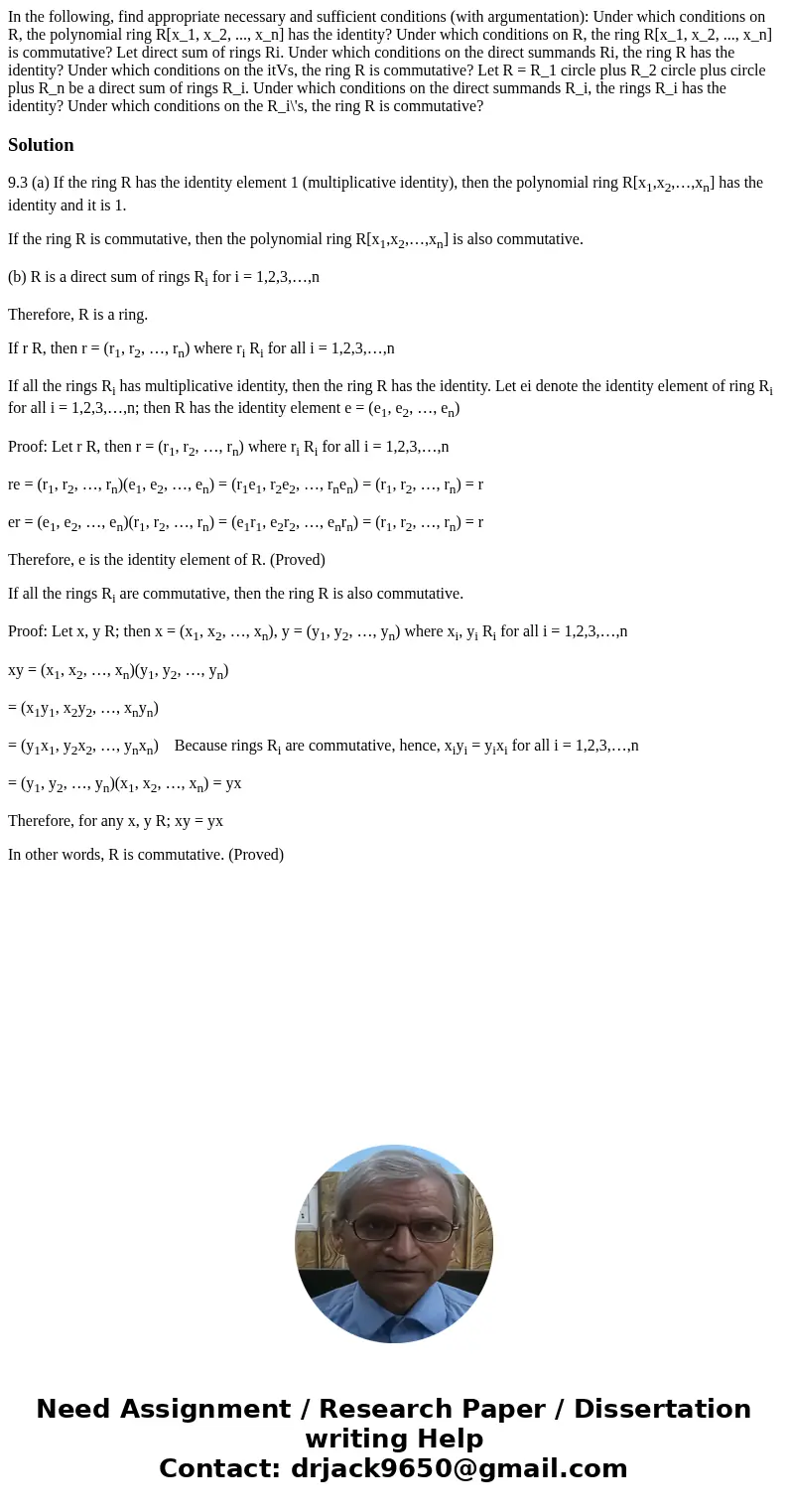In the following find appropriate necessary and sufficient c
Solution
9.3 (a) If the ring R has the identity element 1 (multiplicative identity), then the polynomial ring R[x1,x2,…,xn] has the identity and it is 1.
If the ring R is commutative, then the polynomial ring R[x1,x2,…,xn] is also commutative.
(b) R is a direct sum of rings Ri for i = 1,2,3,…,n
Therefore, R is a ring.
If r R, then r = (r1, r2, …, rn) where ri Ri for all i = 1,2,3,…,n
If all the rings Ri has multiplicative identity, then the ring R has the identity. Let ei denote the identity element of ring Ri for all i = 1,2,3,…,n; then R has the identity element e = (e1, e2, …, en)
Proof: Let r R, then r = (r1, r2, …, rn) where ri Ri for all i = 1,2,3,…,n
re = (r1, r2, …, rn)(e1, e2, …, en) = (r1e1, r2e2, …, rnen) = (r1, r2, …, rn) = r
er = (e1, e2, …, en)(r1, r2, …, rn) = (e1r1, e2r2, …, enrn) = (r1, r2, …, rn) = r
Therefore, e is the identity element of R. (Proved)
If all the rings Ri are commutative, then the ring R is also commutative.
Proof: Let x, y R; then x = (x1, x2, …, xn), y = (y1, y2, …, yn) where xi, yi Ri for all i = 1,2,3,…,n
xy = (x1, x2, …, xn)(y1, y2, …, yn)
= (x1y1, x2y2, …, xnyn)
= (y1x1, y2x2, …, ynxn) Because rings Ri are commutative, hence, xiyi = yixi for all i = 1,2,3,…,n
= (y1, y2, …, yn)(x1, x2, …, xn) = yx
Therefore, for any x, y R; xy = yx
In other words, R is commutative. (Proved)

 Homework Sourse
Homework Sourse